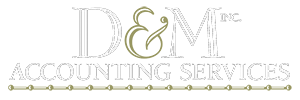Business owners are often hit hard with taxes, which is why deductions and credits are so important to keep track of over the tax year, to minimize as much as possible what you’ll be handing over at the end of your business year.
Business Tax Credits
Plug-In Electric Drive Vehicle Credit
See if your electric car qualifies for the full $7500! This credit is phased out once a manufacturer reaches 200,000 sales of that vehicle.
Research Credit
Guidelines and an audit technique guide are provided for field examiners.
Business Tax Deductions
(a more detailed version can be found here).
So what qualifies as a deductible business expense? These must be considered in your industry as “ordinary” and “necessary”. It’s good practice to separate these from capital expenditures (an amount spent to improve or acquire a long term asset eg. equipment), expenses used to figure the cost of goods sold, and personal expenses (so if a dreaded audit comes around there will be no surprises or confusion).
Capital Expenditures
Business start-up costs, assets, and improvements must be “capitalized” rather than deducted, meaning you have to depreciate it by a certain percentage over a period of time to recover your cost. If you estimate the lifetime of a particular piece of equipment to be about five years, you will depreciate 20% each year → 100% / 5 years. Also related is amortization.
Cost of Goods Sold
When calculated, this number is deducted from your gross receipts, or total sales, to determine your gross profit for the year. Direct costs that go into this number include:
- Cost of raw materials or products including freight
- Storage
- Labor costs including pension contributions or annuity plans
- Factory overhead
There are also some indirect costs that must partially be capitalized including things like rent, taxes, interest, repackaging, handling, administrative costs, etc.
Personal vs. Business Expenses
Some smaller business owners or self-employed may work from home or use their vehicle for business purposes. For vehicles used for work and personal, you must divide out the mileage actually used for work to deduct this. If you have a designated home office, check the article about deducting a percentage of your mortgage, utilities, and insurance.
Other Business Write-Offs
This can include retirement plans (following their individual rules), payment to employees, rent payments of a work facility you don’t own, interest on money borrowed for the business, any taxes related to your industry, and insurance.
There are many other types of deductions that may be pertinent to your business, which you can read more about here, like bad debt (debt you will never recover) and travel reimbursement.
If you need tax preparation services, or help with the preparation of your financial statements, please contact us and we’ll be glad to assist you!
“Ok Google: tax services near me!”

